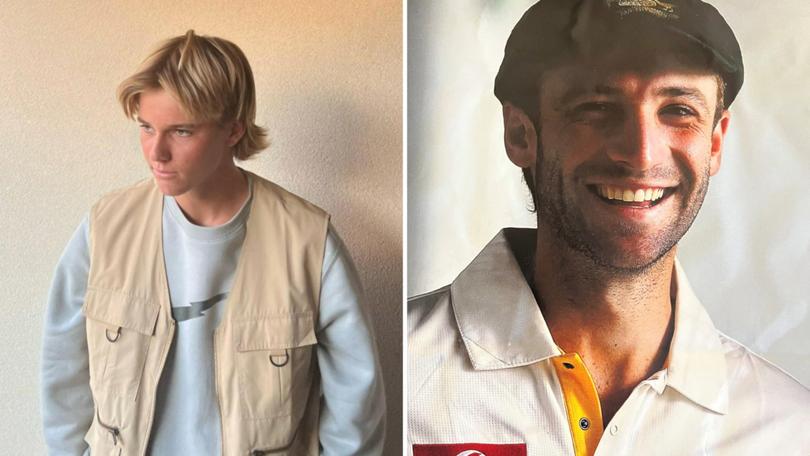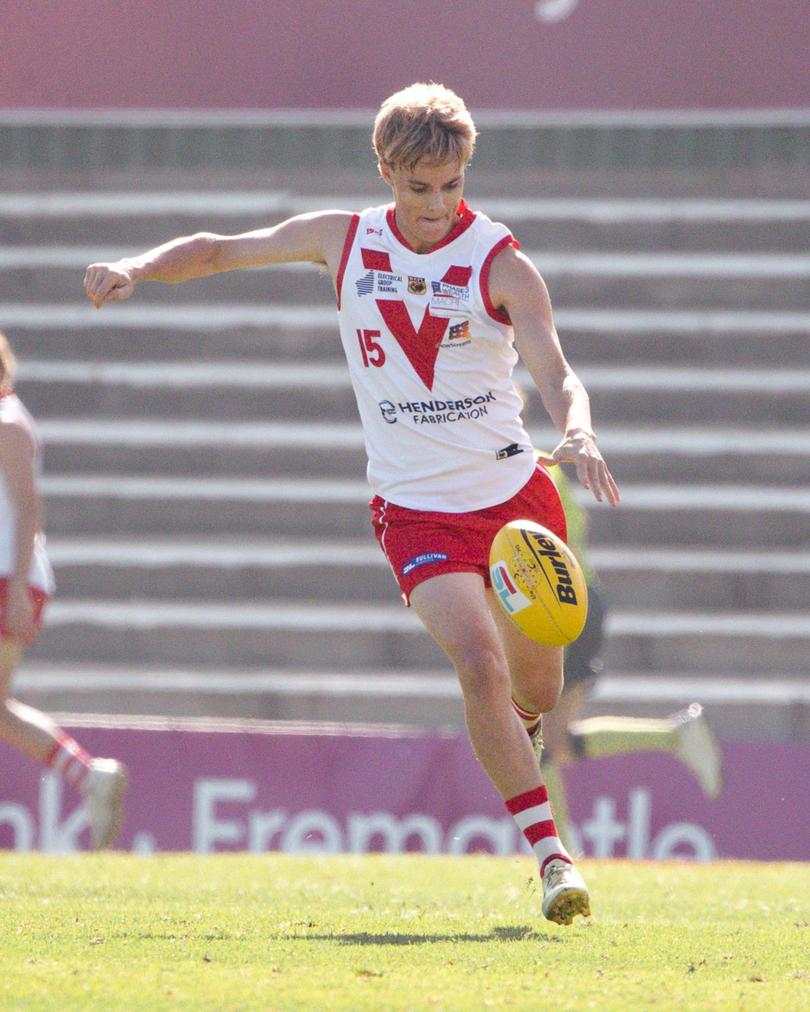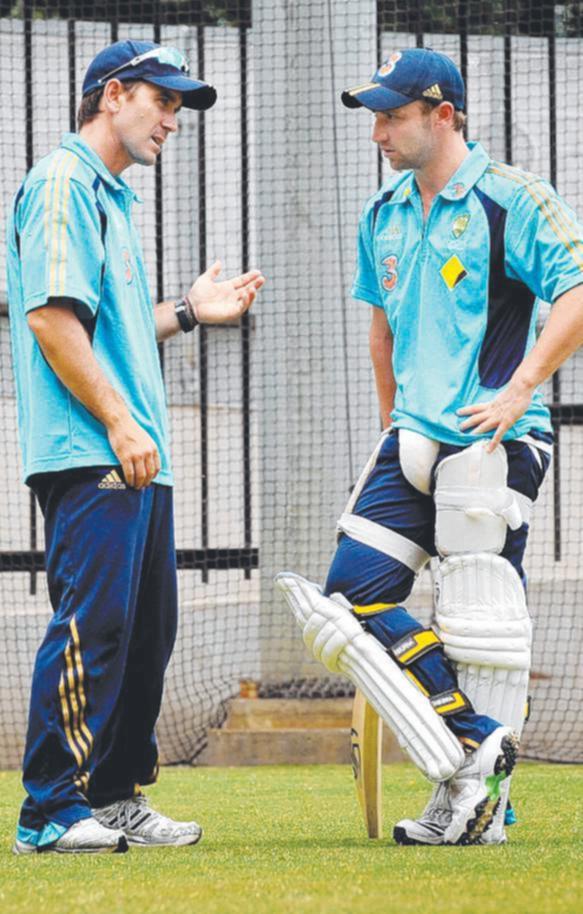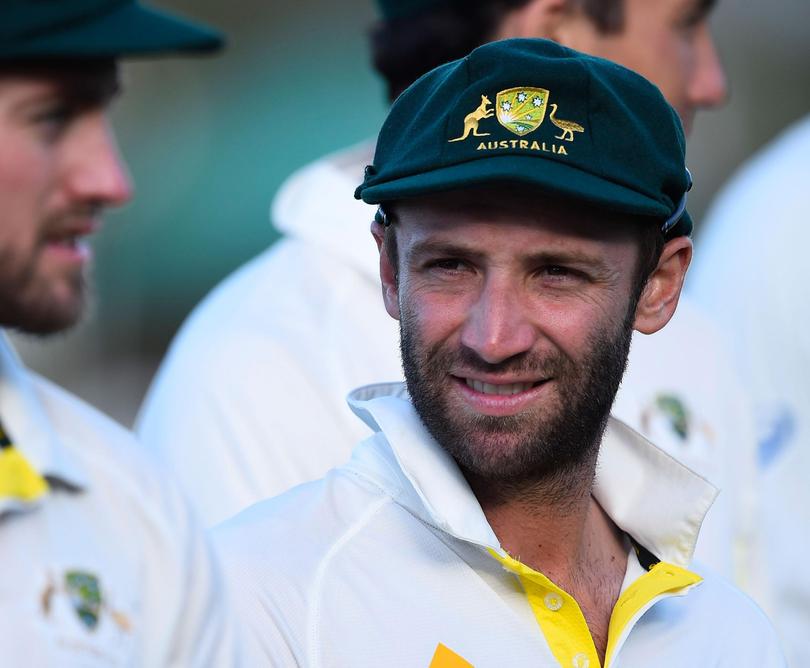Deaths of Nick Campo & Phil Hughes puts spotlight on how youth cope with grief

“In this sad world of ours, sorrow comes to us all; and to the young, it comes with the bitterest agony, because it takes them unawares. The older have learned to ever expect it.”
These words were penned in a letter by Abraham Lincoln to a young girl who had lost her father in America’s crippling Civil War which spanned between 1861 and 1865 — the same period Lincoln served as the 16th President of the United States.
Famous for The Gettysburg Address — which was just 272 words yet redefined American democracy — Lincoln was nicknamed “Honest Abe” due to his reputation for honesty and integrity. A brilliant orator and leader through the toughest of times, he was assassinated in 1865.
Sign up to The Nightly's newsletters.
Get the first look at the digital newspaper, curated daily stories and breaking headlines delivered to your inbox.
By continuing you agree to our Terms and Privacy Policy.In light of Donald Trump’s assassination attempt, a funeral I attended on Wednesday, and the curse of tragedy, I was intrigued when reading about Lincoln this week — and particularly a chapter that highlighted the letter he wrote to the young Fanny McCullough.
He concluded his heartfelt message to her by writing: “You can now not realise that you will feel better. You are sure to be happy again. To know this, which is certainly true, will make you some less miserable now. I have had experience enough to know what I say; and you need only to believe it, to feel better at once. The memory of your dear Father, instead of an agony, will yet be a sad sweet feeling in your heart, of a purer and holier sort than you have known before.”
Having lost two of his own children at the ages of just 11 and three — and overseeing the brutal casualties of the Civil War — Lincoln was right when he wrote, “I have had experience enough to know what I say”.
Two weeks ago today, a young man named Nick Campo was killed in a car accident in North Lake. An aspiring AFL player, Nick was an Aquinas College student who played Colts for the South Fremantle Football Club. His passing, and the torturous ramifications synonymous with such tragedies, have sent shock waves around Perth.

It is unimaginable what Nick’s family are enduring. His friends are grief-stricken. An extended community mourns.
Sadly, these emotions are felt every single day by people around the world. Death through accident, illness, violence, or even one’s own hand happens all the time and is part of the cycle of life. A part that is so hard and often impossible to understand.
When Australian cricketer Phillip Hughes died, it felt like someone, or something was squeezing my chest so hard that my heart began to beat to a point where I thought I could hear it. I couldn’t swallow. My mind was in a swirl and my legs turned to jelly. I was suffocating, and if I didn’t get out of the waiting area at St Vincent’s Hospital in Sydney, I thought I was going to collapse on the spot.
I found out later that I was having a panic attack. And while I had never had one before, or since, I will never forget the feeling.

Two days earlier, I was at the MCG coaching the West Australian cricket team in a Sheffield Shield game. Shaun Marsh was battering the Victorians, and we were well on top. At the tea break, reports circulated about our little buddy being hit by the helmet. Apparently, it was a heavy hit — a bad concussion we suspected.
Later that day when I got back to my hotel room, I was taken aback when Pat Howard from Cricket Australia rang me to say the round of fixtures had been cancelled due to Hughesy’s blow to the head.
My initial instinct was one of shock and frustration.
“What do you mean you’re cancelling the fixture?”, I said. I had nothing but competition points, winning and business on my mind. “Hughesy, wouldn’t want to do that, he would want us to play on.”
That view was stopped instantly with Howard’s sobering response: “JL, I need you to hear what I am saying. Phil is in a very bad way. He is in surgery as we speak, and things aren’t looking good.”
I immediately arranged a flight from Melbourne to Sydney where I was met at the hospital by the Hughes family, and a tribe of Hughesy’s mates, including Sean Abbott the bowler who had bowled the delivery. The mood was sombre, one of utter disbelief and heartache.

At that point there was still hope; sadly a hope that flickered and went out like a candle as the hours ticked by.
Seeing Phillip in his hospital bed was incredibly sad. My little mate with his boyish grin and unorthodox batting style, had been more than just a cricketer.
Not only was he a friend to all, but he was the embodiment of Australian dreams — a country boy who’d made it to the big time through sheer grit and talent. His story was one of hope, of pushing boundaries, of daring to be different.
But on that fateful November day in 2014, the script took a cruel turn.
The Sydney Cricket Ground, usually a theatre of triumph, became a stage for tragedy. A bouncer — a routine delivery in the dangerous dance between batsman and bowler — struck with lethal precision, missing the helmet and cannoning into his neck. In that moment, time seemed to freeze, along with the hearts of everyone watching.
When he collapsed on the pitch, it wasn’t just his teammates and doctors who rushed to his aid. In the days that followed, it was an entire nation, holding its collective breath, willing him to get up, to shake it off as he had done so many times before. But this time was different. This time, the resilience that had defined his career couldn’t save him.
With cricket being a global game it wasn’t just Australia that prayed, but even the strongest prayers, and most skilled, experienced doctors couldn’t produce a miracle.
In the days that followed, cricket bats appeared outside homes across Australia, a silent tribute to a fallen hero. Social media overflowed with the hashtag #PutOutYourBats, a digital vigil that spread across the globe. The world of cricket, often divided by fierce rivalries, united in grief.

Phil’s death, at just 25, forced a reckoning within the sport. The fragility of life had never been so starkly displayed on a cricket field. Questions about safety and the nature of the game itself bubbled to the surface. But amidst the soul-searching, there was also a celebration of a life lived with passion and purpose.
Phil was kind, had an infectious sense of humour and a dedication to his craft that made him a statistical dynamo. His ability to lift spirits in the dressing room was contagious as was his fierce competitiveness, tempered by a gentle spirit of fair play.
He had been much, much more than a cricketer; he had been a friend, a brother, a son who made his beloved family proud.
Talking to friends of Nick Campo this week, I heard words like “a cheeky lad, who always had his mates’ backs, and who always cared for those close to him”.
He “loved his sports and taking a photo of himself”.
He was “blunt and honest and a great mate”. He was “so happy and very competitive and confident”.
All these descriptions brought a smile to my face, even though they were coming from teenage boys who were hurting deeply. Words from his family have been hauntingly sad, yet courageously profound.
Like Phillip Hughes’ accident, questions about road safety and people’s choices have bubbled to the surface in the aftermath of Nick Campo’s death. And amidst the soul-searching, there might even be lessons learned. But most importantly, as with all fallen souls, there will be a celebration of life.
As in too many cases, Nick’s was a life cut short far too soon, but one that will be remembered with “a sad sweet feeling” in the hearts of those left behind, and “of a purer and holier sort than they have ever known before”.
Like Lincoln, I can attest to that — as can everyone who has lost loved ones. But it is only thanks to the passage of time, that the former president’s advice can be understood.
